The table in the Japanese brasserie that Saffron Burrows has proposed for dinner is so wide that we decide to sit not opposite each other, but side by side. Interviewing movie actors tends to be a mutual exercise in faking natural human interaction within entirely unnatural circumstances: a limited number of minutes in a hotel suite with “the talent” flanked by cardboard movie posters to aggressively remind everyone why they’re here: to sell the thing. Burrows is indeed here in this TriBeCa restaurant to sell a thing, but she’s also here because both she and I know that she wants to talk about her personal life for the first time. And the strange thing is how unstrange it all feels.
After a hiatus (her son was born two years ago, which has been, she says, “amazingly clarifying, it crystallises your thinking about work”), she’s returned with Mozart in the Jungle, an effervescent Amazon comedy series set in a New York orchestra that features Malcolm McDowell as the pompous older maestro and Gael García Bernal as the hot-blooded celebrity conductor upstaging him. It’s a little silly but Burrows is great as Cynthia, a cellist who exudes serene wisdom with a hardbitten edge. The show’s director and producer Paul Weitz describes her character as having been “around the block. Like Saffron, she doesn’t want to let other people define her.” She’s a pleasing foil to Hailey, an earnest young oboist played by Lola Kirke, whom Cynthia mentors more in matters of sex and drinking than Mahler.
The big-sister role clearly comes easy to Burrows. She orders over-enthusiastically and, as dishes amass, worries aloud that, “you don’t have enough sustenance”. Her height (5ft 11in, augmented by some grey suede Isabel Marant boots) and beauty somehow add to this air of sisterly confidence. An hour or so in, defeated by an excess of Japanese food, she’s slumped almost horizontal like a teenager. She suddenly becomes aware of this and laughs. “I’m getting far too relaxed with you!”
Burrows began her professional life at 15, when a fashion photographer spotted her in Covent Garden. Soon, she was whisked off to Paris to model for Chanel, Yves Saint Laurent and Vivienne Westwood. The fashion world of the late 1980s was a bit of a shock for a 15-year-old leftwing radical feminist who’d grown up in Islington and Hackney selling the Socialist Worker and attending teachers’ union conferences with her mum. “I mean,” she laughs, “horrified isn’t too strong a word.”
She didn’t stay a model long. In 1993, she made her feature film debut with Jim Sheridan’s In the Name of the Father and since then she’s spent 21 years appearing in TV and movies of both the big, blockbusting kind (Deep Blue Sea, The Bank Job) and the small and indie (Frida, The Guitar). She has, however, given very few interviews. “I think,” she says, “I maybe felt increasingly private as I got older because I became aware of the gravity of statements. And how they linger and last.”
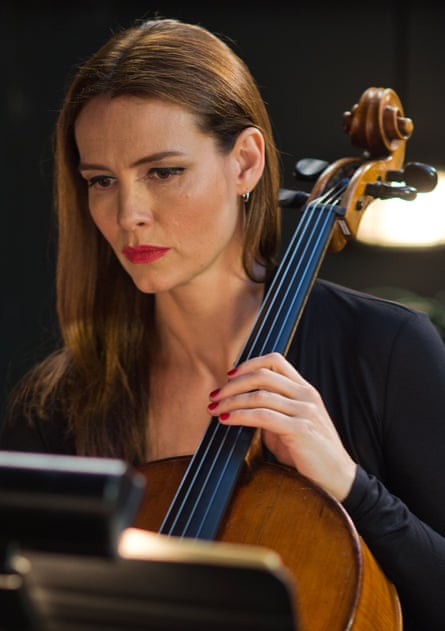
Which is perhaps the same reason why she wants to talk now. Burrows has had serious relationships with women and men – she was with director Mike Figgis for several years and was engaged to the actor Alan Cumming – but in August of last year, two months after the US Supreme Court passed the Marriage Equality act, she married her longtime girlfriend Alison Balian, a writer for the Ellen DeGeneres show. They’ve been a couple for six and a half years and, two years ago, Burrows gave birth to their son. A thin gold band, studded with tiny diamonds sparkles on her left hand. “I always liked the idea of being with someone for a while and then getting married, but I didn’t know if I’d do it.” With a kind of affectionate scoffing at herself, she adds: “I’m quite a romantic, I probably thought I would do it.”
I ask what made them finally decide. “Well,” she says, with an apologetic smile, “I don’t think I want to answer that, only because it’s so private, but I will say that we did elope. We hadn’t told anyone and then I called my mum and she said, ‘You haven’t eloped! You only elope when you’re young and in trouble!’” Burrows, who turned 42 in October, giggles heartily.
In 2009 she became an American citizen, mainly out of a desire to participate in the country’s politics. She notes that in the US there are more “specific-issue causes and less struggles with class things”. And “massive generalisation – but there’s a lot about ‘excelling’ and reaching something here. They talk about women climbing this ladder and I reject the notion of the ladder. So a lot of what social consciousness is built on here I reject.”
I wonder if she also rejects labelling, as in declarations of sexuality. “You mean in general?” she says. Well, and for you, I say. “There are two separate answers,” she says carefully. “For people in general, I think they should name themselves in whatever way they wish. The flourishing of the gay movement in America is clearly very necessary and the identity that people could proudly lay claim to is crucial. Lives are lost every day because of bigotry in this country. So I think that should not prevail.”
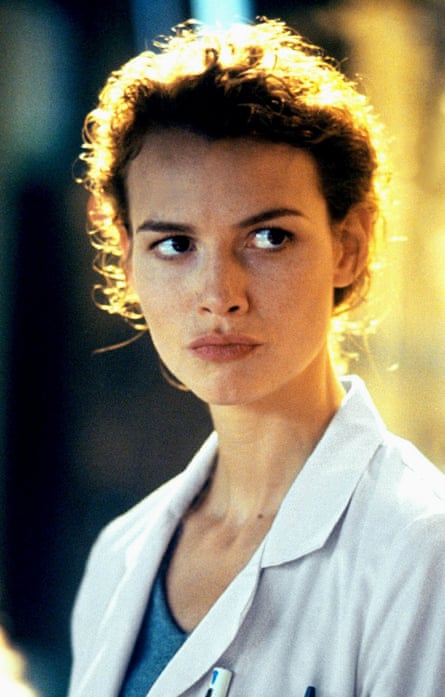
I mention Ellen Page, who came out early this year in a beautifully frank speech; and Jodie Foster, who made an equally moving speech at the beginning of last year that was a kind of non-coming out (“If you’d had to fight for a life that felt real and honest and normal against all odds, then maybe you too might value privacy above all else”). The two seem to represent two lines of thinking, one that says LBGT celebrities have some kind of moral obligation to be loud and proud; and another that says that pressuring figures to make public statements about their private lives is unfair, intrusive and even bullying. They seem contradictory. “But maybe they’re not!” she says. “I mean, I approve of both of those statements.”
She pauses and thinks. “No, people shouldn’t have to make statements and their lives should be private if they want to be. But I think if someone’s feeling restricted by not making a statement, then they should be free to do so. I chose to speak to you because I don’t want to lie by omission and I want to be very straightforward about my life. I don’t want to hesitate and feel hindered by something I haven’t said. Also, I’m really proud of my family and who they are, these two individuals beside me. That’s certainly my proudest achievement. And for my boy, I want to be honest with him because he deserves it – but also proud. And I want us to live a very honest life with each other. I think for a while I was just avoiding conversations, in order to not be labelled in some way that I felt was limiting and not actually true to who I am. I really salute these young women who come out, but if I said I was gay that wouldn’t be true.”
She asks if I read “that piece by Maria Bello”. This was an essay in the New York Times a year ago in which the actor wrote about her best friend, who’s become her girlfriend, and about the different kinds of love and partnership in her life. “I remember thinking first of all, that’s brave,” says Burrows, “and also, what she was saying was a little bit like what I’m saying. Not a big reveal of some kind, just, ‘This is what I am.’ It struck a chord. Sometimes, you think, ‘Oh I’ll do that later, I’ll be more open or more openly honest.’ And then you’re so busy not wanting to be defined that you don’t. And there’s a moment when you think, ‘Well when am I going to do that?’”
She talks about her 17-year-old goddaughter who goes on gay-pride marches with her little brother. Just because, as Burrows says, “that’s what you do. It’s not about fighting racism because you’re affected by racism, or fighting homophobia because you’re affected by homophobia. This is what we do as part of our belief system and philosophy. And that’s how I was raised – I come from a family of socialists and thinkers and I spent my life as a teenager and a young woman going on anti-racist marches, gay pride marches, all of that.
“In the same way, when I started to have relationships, I didn’t think about what I wasn’t ‘allowed’ to feel, or who I wasn’t allowed to love, and consequently I’ve loved some really incredible men and some really incredible women. There’s no coming out to do because I’ve always just followed my heart and I was lucky enough to have parents who didn’t impose any bigotry on me. So to come out would actually be an untruth because the men I’ve loved were very vivid, real, loving relationships.”
She’s beaming. “So I’m with this woman now who’s extraordinary and that’s what we’re doing.”
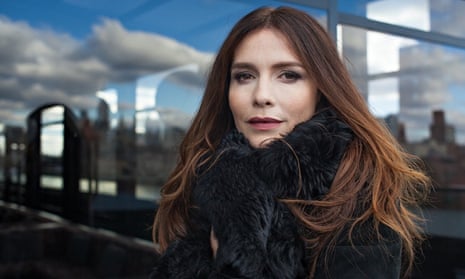

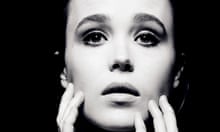
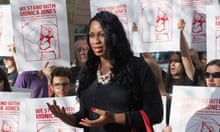

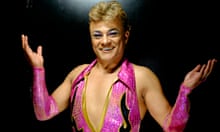
Comments (…)
Sign in or create your Guardian account to join the discussion